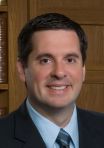Dear President Obama: Congratulations on winning a second term. Iran, as you have often said, will present a major challenge to your foreign policy in the coming months.
Two follies have long haunted US policy on Iran. Some critics of the Islamic regime have offered “no negotiation with the regime” as policy. The other side is the view that just negotiating with the regime is the panacea for the nuclear issue, and also for an end to all the regime’s shenanigans. And if past attempts at negotiation have not worked, it is only because American policy makers have not tried hard enough.
The second folly has been the view that “solving” the nuclear impasse should be the sole goal of US policy. This view misjudges the nature of the regime by assuming that it will actually abide by any promises it makes. This is a regime that has broken virtually every promise it made to its own people, one whose theology is founded on the notion of Tagiyeh—where an expedient lie to “infidels” is the duty of the Shiite faithful. Focusing only on the nuclear issue has played into the hands of the regime, allowing it to rally nationalist sentiments, and shifting the focus of US policy away from the no less important issues of human rights and democracy in Iran.
For almost two decades, Ayatollah Khamenei has said that America’s “soft power” and its “culture war”–the power of its ideas, its defense of the right of religious freedoms for all Iranians, whether of Bahai faith, or Muslims wishing to convert to other religions, equality for women, and the power of its information technology to breaking what you called a new Iron Curtain of ideas–is the most serious threat to his regime. And for almost as long, the US has surprisingly not fully played in the field the regime is in fact most vulnerable.
Carrying the anti-American and anti-Israeli banner had been the sole tool of the Shiite, non-Arab clerics of Iran to claim the mantle of leadership of the proverbial Arab or Muslim Street. Another obstacle to serious negotiations with the US has been the IRGC’s realization that tensions with America have been instrumental in its success in becoming an economic and political juggernaut, dominating directly or indirectly an estimated sixty to seventy percent of the economy.
But in spite of the regime’s designs and desires, the regime is left with little alternative but to negotiate with the US. For America, the policy foundation of any negotiations should be that only a more democratic, transparent and law-abiding power in Iran can solve the nuclear issue. I know you have long believed that the US can’t, and should not, export democracy to Iran; but it is no less true that America can help create a more favorable context for transition to democracy. Another corollary to this policy is that military action on Iran to retard the regime’s nuclear program will be the best gift to the troubled Islamic regime. Its recent bellicosity in claiming to “hunt down” at least three US drones is sure proof that at least some in the regime are pining for such an attack.


























